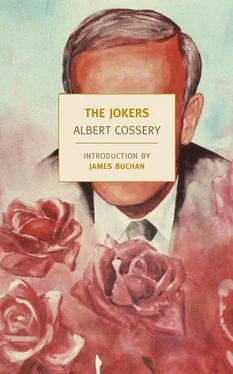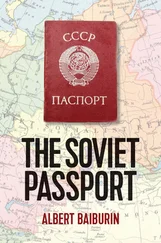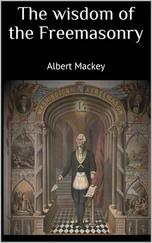Looking lazier than ever, Siri rose, retrieved the clothes brush, and went to stand next to Heykal. Everything was settled, he thought. He awaited his master’s congratulations.
“So, prince, you’re not mad anymore?” he asked.
“It’s all right,” said Heykal. “I forgive you, though it’s the stupidest story I’ve heard in my life. From now on, leave the honor of the house alone. You nearly made me miss a very important meeting.”
“How could I leave the honor of our house alone!” responded Siri, opening not just one eye but both at the same time. It was a sign of powerful emotion. “I’ll never let anyone insult you, prince!”
“Give me a handkerchief,” Heykal snapped, realizing that the discussion could drag on forever. Honor was his servant’s favorite subject.
From the dresser Siri removed an immaculate white handkerchief and presented it to his master, who grabbed it, checking carefully to see that it was spotless, then slipped it into the outer pocket of his jacket. He was now dressed. He inspected himself in the mirror one last time, and, finding himself impeccable in every way, prepared to leave.
This abrupt departure was not to Siri’s liking. He would have preferred to talk longer with his master, to share some deep thoughts drawn from his sleepy brain. But sensing that there would be no indulgence this time — Heykal refused to talk — he accepted his cruel fate. Full of foreboding, he asked:
“Your orders, prince?”
“I don’t need a thing,” Heykal responded. “I’m dining out. Go to bed.”
And he disappeared into the corridor, leaving Siri speechless.
The lamplighter, performing his nightly chore, leaped from one streetlamp to the next like an aerialist, illuminating the twilit evening with a rich, magical glow. His gestures were sweeping and graceful, and Heykal stopped to watch him before venturing into the street. Before he could take two steps, he was hailed by a man who’d been hiding behind a tree. Surprised, Heykal approached the stranger. He stared blankly for a moment before recognizing him. It was an old acquaintance — a man who’d been Heykal’s personal beggar for years, who used to wait in front of his door every day. Heykal hadn’t seen him since the governor’s citywide crackdown on begging.
The man was trembling; his eyes were haggard and bleary; his rags seemed filthier than usual. He whispered hoarsely:
“May Allah help the believers!”
“Yes,” said Heykal, “sad times. Where’ve you been for so long?”
“I was in hiding,” responded the man, still in a whisper. “What else could I do? The ones they caught they sent to prison. This governor’s a demon.”
“I know. But it won’t last forever. Better times are coming.”
“May God hear you! I was desperate for a word of hope.”
He inspected the surroundings, as if expecting a cop to appear at any moment.
“This city’s no good anymore,” he went on. “The poor, forced into hiding — how are we supposed to survive?”
“Don’t be pessimistic,” Heykal consoled him. “Come on, let’s get out of here. Walk with me a bit; we can talk on the way.”
The man seemed deeply afraid.
“I can’t,” he said. “They’re everywhere. They’re watching me.”
“Don’t be scared,” said Heykal, taking him by the arm. “You’re with me now. You can’t be punished for walking with a friend.”
“A friend!” exclaimed the beggar. “For saying that, I’d follow you to hell.”
He set off with Heykal; at first he was hesitant, but soon he walked forthrightly by his side. Though his fear had apparently dissipated, he was still discreetly on guard. Heykal smiled; this encounter had pleased him. He was trying to think how he could help the beggar.
“Here’s what I propose,” he said at last. “There’s no need for you to put yourself at risk by hanging around all the time waiting for me in the street. Come to my place once a month, and I’ll give you everything then. That way, there’s no risk.”
Heykal glanced at the beggar, who looked sadder than ever. Clearly he wasn’t at all satisfied by this proposition.
“What’s the matter?” asked Heykal.
The man was quiet. He looked downcast, as if he’d just been deeply offended.
“I’m not your employee,” he finally said. “What about our friendship? It’s not just the money. I like talking to you — that’s what I’ve missed the most.”
“I understand,” said Heykal. “I miss it, too. Still, you should do as I say.” He pulled a coin from his pocket and slipped it into the beggar’s hand. “Take this for now.”
“May Allah make you prosper!” said the man. “It’s done me good to see you; I feel a new hope growing in my heart.”
Night had fallen. They arrived at the edge of a large, brightly lit square bordered by shops and cafés with crowded, noisy outdoor seating. In this high-security zone the beggar was overwhelmed by fear; he stopped, terrified, as if confronting a jungle of hungry wild beasts, and refused to go farther.
“So, do we have an understanding?” asked Heykal. “You’ll come see me?”
“I’ll come,” the man promised. “To see you again, I would brave death! May Allah protect you.”
Heykal warned him to be careful, then crossed the square.
The Globe was a pretentious café located on one of the most elegant streets of the European Quarter, not far from the cliff road. It was famous for its long stretch of open-air tables, before which passed a magnificent and unceasing parade of pretty girls. The majority of its customers — almost all, in fact — spent their time lustfully sizing up the feminine figures that sauntered by. The thin dresses worn by these divine creatures made the men’s task as easy as it was mesmerizing. Some customers of the café—not the youngest — would sit and wait all day just to see the perfect curve of a beautiful leg or the quivering mystery of an anonymous haunch. And, in fact, the girls were as eager to display their charms as the men were to observe them; some of them were even said to go without underwear, just for the mischievous pleasure of watching the unfortunate voyeurs overheat. So at the Globe the outdoor tables were always full — except during the blistering midday hours, when it was customary for the young ladies to take their siesta. The inside of the café, however, was almost always empty — with the occasional exception of a pair of old codgers who, awaiting their departure for the sweet hereafter, played a lazy game of dominoes that would probably extend into the afterlife. Every now and then, roused despite themselves by the whoops from outside, they’d cast a dull glance through the window onto the objects of so much lust; then, faint with desire, they turned back to their senile game.
Heykal approached the café. He walked confidently, slipping between tables and carefully guarding the virgin purity of his magnificent, freshly ironed suit. He was looking straight ahead and seemed to pay no attention to the people in his path. He wondered if Khaled Omar was already there, and whether he would be recognized by him. Heykal wanted to gauge the intuition of his future friend and accomplice. It was a litmus test: surely any truly intelligent man would recognize him immediately! It seemed impossible that Khaled Omar — if he was the man Heykal imagined him to be — would fail to notice his presence.
Someone stood up in front of him, as if to block his way. It was Khaled Omar, a short man holding out a fat, ring-laden hand.
“What an honor to meet you!”
“The honor is all mine,” responded Heykal. He pressed the businessman’s hand.
“Please sit,” said Khaled Omar.
Heykal sat. Khaled Omar remained standing for a few seconds, then sat as well. He gazed ecstatically at Heykal as if at an enchanting vision.
Читать дальше












